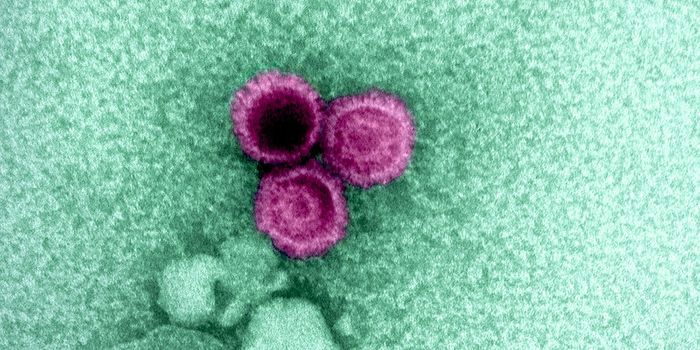A New Way To Fight Severe Peanut Allergies
Over 1 million U.S. children have an allergy to peanuts, with exposure leading to anaphylaxis or even death. Traces of peanut oil are found in every corner of the grocery store, even in unassuming food like soups and salad dressings, making avoidance very difficult.
Now, researchers at Duke Medical Center and Massachusetts General Hospital have found a new approach to desensitize the immune system's attack on peanut protein. The two methods currently available to help patients with severe nut allergies are either not effective, or come with severe side effects.
First, a patch was developed which releases peanut protein into a patient gradually through the skin. The hope is that it will raise the patient's tolerance to peanut exposure in food, effectively decreasing the consequence of accidental ingestion. The method is not as effective as hoped, and though it is safe, it is not FDA-approved.
The more commonly used method is Oral Immunotherapy (OIT), which is a pill containing peanut protein, that patients take regularly to increase tolerance. Patients begin by taking 0.5mg dose of peanut protein daily, and dosage increases to 300mg, or about equal to one peanut kernel. That dosage is maintained for the remainder of the year-long study. OIT is very effective for some people, but others suffered serious side effects and even dropped out of the study. OIT treatment finished phase III clinical trials, and currently under review at the FDA.
Researchers at Duke Medical Center and Massachusetts General Hospital experimented with a new method to desensitize peanut allergies in children. The therapy, called "sublingual immunotherapy" (SLIT), is a doctor administered drop of peanut protein under the patient's tongue. Similar to OIT, the starting dosage is minuscule but gradually increased, then maintained over a long period. By cutting out the digestive process, and allowing the body to directly absorb the protein, patients can build resistance with smaller doses than current treatments.
The SLIT study was done with eighteen participants, from 1 to 11 years old. For six months, the participants were given increasing doses of peanut protein, then for the following six months, they continued dosage of the maximum amount of peanut protein. The study concluded with a food test to see how desensitized their immune system was to peanuts. Participants were given just 0.0002mg peanut protein to start and gradually increased to 2mg.
The SLIT participants tolerated 10-20X as much peanut protein as it would take to make someone sick. The increased tolerance gives people a buffer for food with traces of peanut protein that normally would trigger anaphylaxis.
Though SLIT was a smaller study than those used to test OIT, SLIT shows encouraging signs. Data shows SLIT and OIT are about equally effective in desensitizing the immune system, and none of the eighteen participants had severe side effects or dropped out of the SLIT study. The only side effect of SLIT was itchiness of the throat, which lasted for about 15 minutes following dosage but required no treatment. The small doses, less than a tenth of what OIT patients are exposed to, make the SLIT method much safer.
The labs at Duke and MGH are focusing on two other related studies. A 4-year study with 55 patients that received up to a 4mg daily dose of peanut protein will be published in late 2019. The other study focuses on children between 1 and 4 years old because this age group is more responsive to treatment and better maintain longterm desensitization to peanut protein.
Sources: Kim et. al., TechnologyNetworks, MedPage Today









